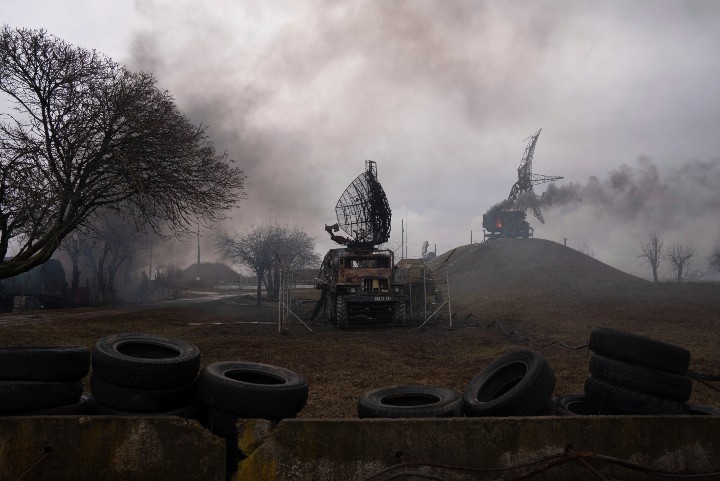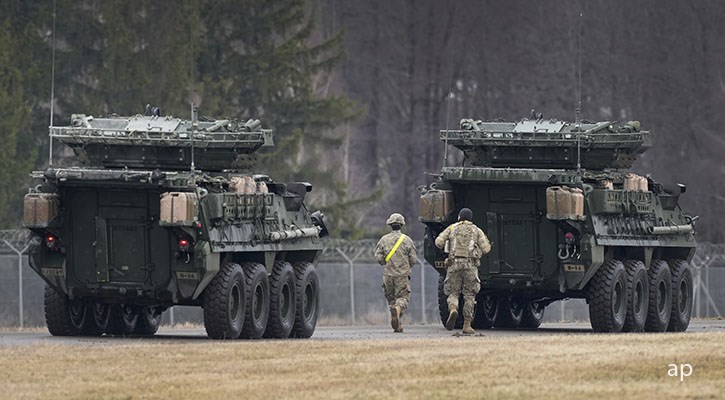
Thursday’s Russian military assault on Ukrainian territory was accompanied by cyber, air and missile attacks across the country. It all adds up to the worst-case scenario so far contemplated by analysts, investors, and, most of all, Ukrainians themselves. Asian economies were not spared from the broader Russia-Ukraine conflict, though they were impacted to a lesser extent compared to the European markets.
Stocks in the Hang Seng Index slumped 3.2% and the CSI 300 dropped 2.0%. China’s oil stocks showed resiliency but shares in automakers, property developers and banks all headed south. Taiwan's TAIEX and South Korea’s Kospi both closed with a 2.6% drop and Japan’s TOPIX fell 1.3%.
What Will Happen to Asian Assets?
Sean Taylor, APAC CIO and global head of emerging equities at DWS, warns investors that Asian assets have a certain risk exposure to the evolving geopolitical situation in the European continent.
“First, Asian countries such as China, India, South Korea, and Japan are major importers of energy, and they could be affected by higher energy prices. Second, risk premium of assets in Asia will increase as well, thus negatively impacting Asian equities. Third, if a risk-off situation escalates, the U.S. dollar will be a safe haven for investors, therefore negative for Asian foreign exchange,” he says.
Moreover, Taylor sees pockets of value due to the underperformance of some Asian assets after a correction in 2021. “Asian equities have underperformed global equities and are trading at reasonable multiples. Some Asian credit could also benefit from higher commodity prices such as Indian and Indonesian credit.” He adds that because of interest rate differentials, Renminbi and selective Asian currencies remain “well-anchored”.
Kelly Chung, senior fund manager for multi assets investments at Value Partners, echoes the view that some Asian markets are a better place to be. She believes that the resultant rise in inflation that weighs on the U.S. market may, in turn, support resource- and export-heavy Asia, especially Malaysia and Indonesia.
“With both Russia and Ukraine being major exporters of oil and other commodity products, the tensions may cause more bottlenecks in the supply chain and push up energy and food prices. In addition, any response from the Western economies, especially the U.S., would likely be trade sanctions, which would also impact oil and food prices,” she added.
Focus on Other Commodities Too
In addition to upward pressure on oil prices, Tai Hui, chief Asia market strategist at J.P. Morgan Asset Management believes there will be an impact on other commodities too, which may also be felt in the Asian region.
For example, Russia is the world’s largest exporter of wheat, which could potentially pull food prices upward in the wider region. He adds: “Ukraine’s production of industrial gases could also impact the semiconductor industry [which plays a huge part in Taiwan’s and South Korea’s economy], although the immediate impact is mitigated by chip producers stocking these raw materials” says Hui.
Thus, he believes that In Asia, energy importing economies, such as India, South Korea, and Japan could also feel the pressure more than exporters.
Asset Allocation in These Times
On asset allocation, Hui says: “These geopolitical events reiterate the importance of diversification in asset allocation, especially when there is a more direct transmission mechanism to the wider global economy – oil.”
Over the near term, while the conflicts remain a major market overhang, he expects investors to hedge both inflation and equity risk via commodities (including related equities and corporate credits) and government bonds. “The latter has reloaded some value following a much more hawkish Fed and central banks in developed markets more broadly. However, government bonds are likely to prove to be a more powerful diversifier to a growth shock than an inflation shock.”
Furthermore, Hui cautions investors against positioning towards continental Europe considering the potential damage from higher energy costs, although the European economies have printed resilient economic data in the recent months.
Value Partners’ Chung expects volatility to continue throughout 2022, driven by various factors, including inflation, the pace of tapering by the Fed, and regulatory uncertainty in China.
Chung adds: “Overall, we believe that the current investing landscape should offer bottom-up investing opportunities as we expect more diverged performances among companies and sectors. Currently, we are seeing opportunities in value sectors amid the sector rotation and also continue to favour high-quality companies that are beneficiaries of growth policies.”
©2021 Morningstar. All rights reserved. The information, data, analyses and opinions presented herein do not constitute investment advice; are provided as of the date written, solely for informational purposes; and subject to change at any time without notice. This content is not an offer to buy or sell any particular security and is not warranted to be correct, complete or accurate. Past performance is not a guarantee of future results. The Morningstar name and logo are registered marks of Morningstar, Inc. This article includes proprietary materials of Morningstar; reproduction, transcription or other use, by any means, in whole or in part, without prior, written consent of Morningstar is prohibited. This article is intended for general circulation, and does not take into account the specific investment objectives, financial situation or particular needs of any particular person. Investors should consult a financial adviser regarding the suitability of any investment product, taking into account their specific investment objectives, financial situation or particular needs, before making any investment decisions. Morningstar Investment Management Asia Limited is licensed and regulated by the Hong Kong Securities and Futures Commission to provide investment research and investment advisory services to professional investors only. Morningstar Investment Adviser Singapore Pte. Limited is licensed by the Monetary Authority of Singapore to provide financial advisory services in Singapore. Either Morningstar Investment Management Asia Limited or Morningstar Investment Adviser Singapore Pte. Limited will be the entity responsible for the creation and distribution of the research services described in this article.











.png)


.jpg)





